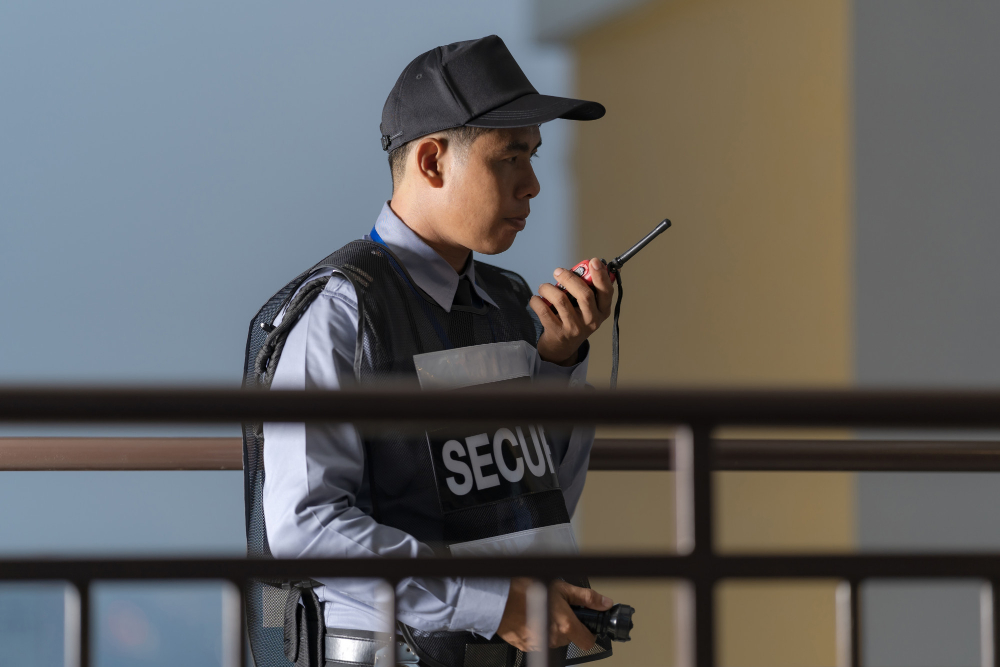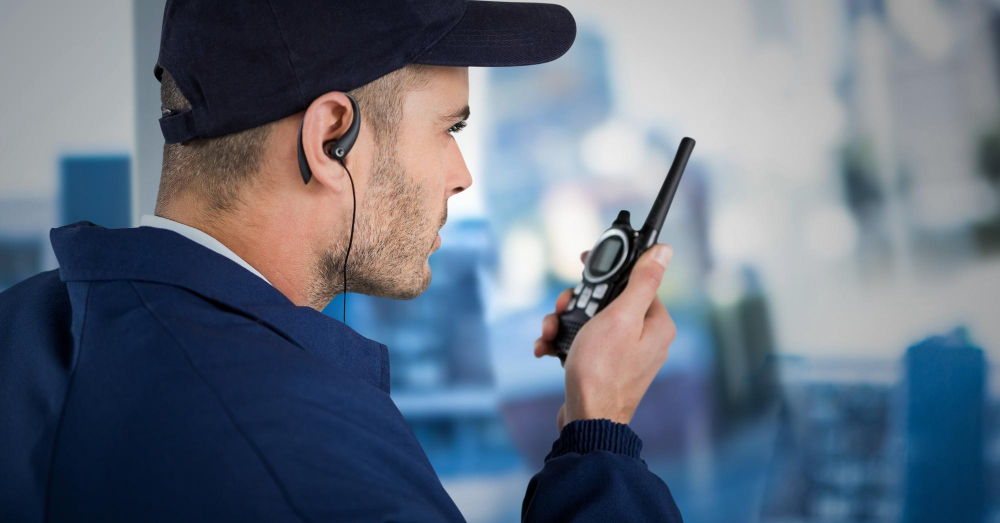Welcome to the world of healthcare security, where our unsung heroes work tirelessly to protect patients, staff members, and visitors in medical facilities. The Health Care Security Agency (HSA) serves as the backbone of this critical line of defense that ensures safety within healthcare institutions. While doctors, nurses, and other medical professionals focus on healing their patients, HSA personnel stand ready to prevent any disruptions or disturbances from endangering the well-being of those under their care. In this blog post, we'll delve into what makes the HSA an essential part of modern Health Care and why becoming a healthcare security guard might just be your calling!
What is the Healthcare Security Agency?
The Healthcare Security Agency (HSA) is a specialized security organization that works within healthcare facilities to ensure the safety and well-being of patients, staff members, and visitors. As an integral part of modern healthcare delivery, the HSA aims to prevent physical harm, theft, vandalism, or any other disruptions that may compromise patient care.
The agency employs different types of security personnel based on their specific roles and responsibilities. For instance, uniformed guards patrol hospital premises to monitor entrances and exit while plainclothes officers blend in with the crowd to detect suspicious activities. Additionally, some HSA personnel are trained in crisis intervention techniques to handle emergency situations such as assaults or medical emergencies.
To achieve its mission successfully, the HSA collaborates closely with medical professionals and administration teams within healthcare institutions. The agency also develops comprehensive security plans tailored for each facility based on factors such as location, size, and type of services provided.
The Health Care Security Agency plays a crucial role in ensuring smooth operations within healthcare facilities by providing reliable protection against potential threats.
The Agency's mission and goals
The Healthcare Security Agency has one primary mission, which is to ensure the safety and well-being of patients, staff, and visitors in healthcare facilities. The agency aims to achieve this by providing highly trained and skilled security personnel who can respond quickly to any situation that may arise.

One goal of the agency is to prevent potential threats from escalating into more significant incidents. This involves maintaining a visible presence within healthcare facilities, monitoring access points, conducting routine patrols, and identifying vulnerabilities that need addressing.
Another goal of the Health Care Security Agency is to foster a culture of safety within healthcare organizations. By partnering with these organizations and their respective stakeholders, they strive to create proactive initiatives that promote patient-centered care while ensuring secure environments for all.
Additionally, as part of its mission statement, the agency provides education on best practices in security management in healthcare settings. They offer training programs designed specifically for healthcare professionals aimed at reducing risks associated with workplace violence prevention.
Ultimately the Health Care Security Agency's mission centers around delivering exceptional service through innovative solutions that safeguard lives while promoting quality patient care throughout health systems nationwide.
The different types of healthcare security guards
Healthcare security guards come in different types, each with distinct responsibilities and duties. The most common type is the unarmed security guard who patrols the premises to ensure safety by watching for unauthorized activities or behavior that could threaten patients, staff, or visitors.
Another type is the armed security guard whose primary function is to protect against violent incidents such as assaults on health Care personnel or patients. These guards undergo rigorous training in firearms use and handling procedures.
Other types of healthcare security guards include mobile patrol officers who monitor multiple locations within a facility, CCTV operators responsible for monitoring surveillance cameras throughout an establishment, and emergency response teams trained to handle crises such as accidents or medical emergencies.
Regardless of their specific role within a healthcare facility, all security personnel must exhibit professionalism at all times while maintaining a calm demeanor in high-pressure situations. They should also possess excellent communication skills to interact effectively with patients, families, visitors, and other hospital staff members.
The training and skills required to be a healthcare security guard
To become a healthcare security guard, certain training and skills are required. Firstly, candidates must have a high school diploma or GED equivalent. They should also be physically fit as the job may require standing for extended periods of time, running after suspects, or restraining patients who pose a danger to themselves or others.
Furthermore, candidates must undergo formal training in safety procedures and security techniques specific to the healthcare industry. This includes knowledge of legal requirements like HIPAA (Health Insurance Portability and Accountability Act) and OSHA (Occupational Safety and Health Administration).
Other important skills for healthcare security guards include strong communication abilities to effectively handle conflicts with patients or visitors calmly yet firmly. They should also possess excellent observational skills which enable them to quickly identify potential threats before they escalate into dangerous situations.
Good judgment is essential as healthcare security guards are often placed in positions where they need to make quick decisions that can impact the safety of everyone around them. With proper training and honed skillsets, individuals can excel at this demanding yet rewarding profession.
The benefits of being a healthcare security guard
Being a healthcare security guard comes with many benefits. One of the most significant is that you are contributing to keeping patients and staff safe in a healthcare setting. This role provides an excellent opportunity to make a positive impact on people's lives.
In addition, working as a healthcare security guard can offer job stability and growth opportunities. With the increasing demand for trained personnel in medical facilities, there is always room for professional development within this field.
Another benefit of being a healthcare security guard is that you get to work alongside other health professionals such as doctors, nurses, and administrative staff. This interaction allows for more exposure to various aspects of the medical industry, which could lead to new career paths or interests.
Moreover, this job offers flexible hours allowing individuals who need part-time jobs or those who prefer weekend shifts some freedom to pursue their hobbies or education during the week.

One cannot ignore the potential monetary rewards that come with being employed as a healthcare security guard. While salaries vary by location and experience level; they generally pay well enough considering less formal training required compared with other health professions making it attractive for entry-level candidates as well.
The job outlook for healthcare security guards
The job outlook for health Care security guards is promising, as the demand for these professionals continues to grow. With the increasing number of patients in healthcare facilities, security has become a crucial aspect of ensuring safety and privacy.
Moreover, healthcare security guards are essential in maintaining order and protecting staff, patients, and visitors from potential threats or violence. This need has led to an increase in job opportunities across various medical settings including hospitals, clinics, nursing homes, and rehabilitation centers.
In addition to this growth trend, advancements in technology have revolutionized the way healthcare facilities operate. As such, there is a growing demand for skilled security personnel who can monitor surveillance equipment effectively while also providing physical protection when needed.
Furthermore, with an increasing focus on mental healthcare services within medical institutions today; many healthcare organizations now require individuals trained specifically in handling psychiatric cases. Such specialized training makes Healthcare Security Guards more valuable than ever before to employers looking for qualified personnel.
It is clear that as long as there are vulnerable people receiving treatment at medical establishments worldwide; there will always be a need for dedicated Healthcare Security Guards with solid skill sets- making it a viable career choice with immense potential for growth.
Conclusion
To sum it up, the Healthcare Security Agency is a vital organization that plays an essential role in ensuring the safety and security of healthcare facilities and their patients. The agency's mission and goals are centered around creating a safe environment for everyone who enters these facilities.
It takes dedication, training, and specific skills to become a healthcare security guard. These professionals play different roles within healthcare organizations, from protecting patients to preventing theft or violence. Becoming a part of this field can be rewarding on many levels, including good salaries, and job stability with excellent benefits.
Furthermore, given the increasing demand for qualified healthcare security guards due to various factors like aging demographics or increased public awareness about safety concerns at medical centers across North America, those considering entering this industry have much room for career growth.
We hope you gained valuable insights into what makes up the Healthcare Security Agency—its mission statement as well as its functions—alongside employment opportunities available within this sector. The work done by these guardians of health deserves our appreciation because they ensure that hospitals remain safe environments where healing can take place without any disruptions.
